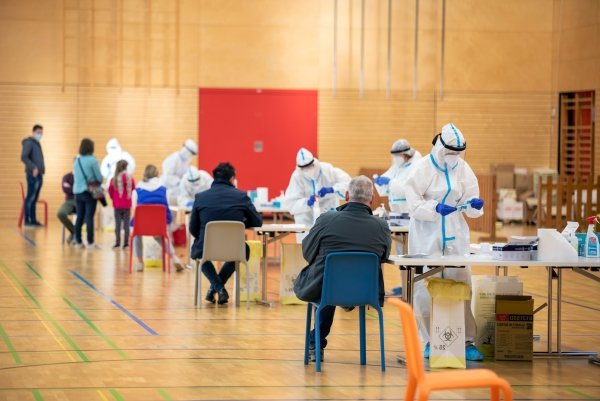Still to Come This Week
 |
Monday, May 17–18 // 12:30–3:30 pm (ET)
From climate change adaptation to broadband connectivity to the rights of Indigenous peoples, Arctic youth leaders’ policy issues are Arctic policy issues. Over two half-days, The Arctic in 25 Years symposium will gather emerging Arctic leaders to inform and influence potential Arctic policy for the next generation.

Monday, May 17 // 4–5:30 pm (ET)
In the 1970s, U.S. economists, policymakers, and activists joined a war on global poverty. They rejected the notion that economic growth would trickle down to the poor, and they increasingly positioned women as economic actors who could help lift nations out of destitution. In the 1980s, as faith in the market impinged on faith in the state, tiny loans to impoverished women displaced more ambitious proposals for redistribution. A War on Global Poverty tracks the route from modernization to microcredit and shows how anti-poverty efforts came to focus on women as the deserving poor.

Tuesday, May 18 // 9–10:30 am (ET)
Join a discussion with GCF Executive Director, Yannick Glemarec, and an expert panel on how institutional support, innovative financing solutions, and new partnerships can mobilize the investment needed to scale up sustainable mitigation and adaptation action, and strengthen the resilience of the most vulnerable countries across the globe.

Tuesday, May 18 // 10–11 a.m. (ET)
Vladimir Kara-Murza, a Russian opposition politician and chairman of the Boris Nemtsov Foundation for Freedom, will describe the increasingly repressive political atmosphere in Russia today, looking ahead to the Duma elections later this year and beyond—and what the future could hold given the growing anti-Putin sentiment in Russian society.

Wednesday, May 19 // 8–9 am (ET)
Andrei Lankov, Director of NK News and Professor at Kookmin University in Seoul will join us for a conversation on North Korean-Russian relations.

Wednesday, May 19 // 9–10:30 am (ET)
Join the Wilson Center’s Maternal Health Initiative, in collaboration with USAID’s MOMENTUM Country and Global Leadership, for a panel discussion highlighting country-led strategies to improve equity and meet the needs of ALL women and children.

Wednesday, May 19 // 1–2:30 pm (ET)
The Biden Administration must develop policies for Iraq and Syria that prioritize Yezidi and minority rights and must ensure that Yezidis do not suffer persecution and further marginalization even after the military defeat of ISIS. This panel will discuss the challenges and opportunities for Yezidis, the geopolitical terrain, and possible paths forward for the United States.

Wednesday, May 19 // 2:30–5 pm (ET)
Join us for a virtual discussion on opportunities for enhanced continental cooperation as we publish our first round of North America 2.0 policy papers on the topics of border security; migration; cybersecurity and critical infrastructure; military cooperation; higher education; and workforce development.

Wednesday, May 19 // 3–4:30 pm (ET)
Join the Latin American Program and Brazil Institute for a discussion of the environmental sustainability of large Latin American companies. This is the first of several conversations highlighting private sector engagement on environmental protection in Latin America.

Thursday, May 20 // 9–11:30 am (ET)
Tune in to learn more about the situation on the ground in Myanmar, policy options for the United States and other international actors, and the future of the country.

Thursday, May 20 // 3:30–5 pm (ET)
Who will make up the Constituent Assembly? What priorities will members pursue? How will the delegates reach consensus on tough issues that have proved divisive in the past? What impact will the process have on the future trajectory of Chilean politics and the country’s image as one of the hemisphere’s most stable countries?

Friday, May 21 // 12–1 pm (ET)
Given the severe limitations on civic space, press freedom, and the exercise of political rights, what are the prospects for democracy in Nicaragua? Is it possible to create better conditions for electoral competition? Will the opposition abstain in the face of current obstacles? Will the opposition unify? Is there a constructive role for the international community to play?

Friday, May 21 // 12–1 pm (ET)
The return to Russia and subsequent imprisonment of Alexei Navalny represents a possible turning point in Russian domestic politics. Navalny’s reappearance on the Russian stage sparked a series of large protests and a predictable sharp reaction from authorities. Can the opposition remain organized and united in light of this crackdown, or will Putin’s authoritarian turn be sufficient to maintain his grip on power?

|





